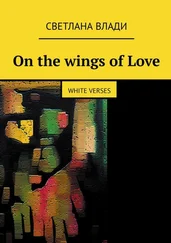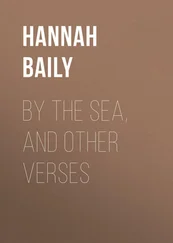Wasn’t that the only season finale that would leave me satisfied?
I turned my attention back to the computer and continued to scroll down my inbox. Near the bottom was a message from my father.
The subject heading: Remember her?
I clicked on the message. It was just a few sentences and a weblink.
I just found this. My first time hearing this side of her. My God! Love, Dad .
I clicked on the weblink and my computer’s audio player popped up.
A voice trying too hard to sound purposeful and trustworthy said: Samina Akram, 2 January 1986, Karachi. In conversation with Maulana Moin Haq.
The voice cut off and the audioplayer started rebuffering the sound file.
I had been there. I had been in that audience in an auditorium in Karachi, 2 January 1986, watching my mother and the maulana square up to each other — an extraordinary match-up that only took place, Omi said, because both my mother and the maulana were convinced of their ability to decimate the other in discussion. I had been sitting between Omi and Beema in the first row of the audience, and while the moderator (the term caused Omi much amusement) was introducing my mother, Omi and I were making faces at her up on the stage, trying to make her laugh, while Beema shrugged apologetically in her direction. At one point, Omi had bunched his features into a exaggerated grimace and it was the maulana, not my mother, who caught his eye. The look on the man’s bearded face almost made me fall off my chair with suppressed laughter.
I rubbed my hands over my eyes and my mother’s voice filled the office: ‘Maulana Sahib, is it asking too much of you to look at me while I speak?’
A man’s gentle voice came back: ‘Mohtarma, if you don’t respect yourself and the laws of the Qur’ān enough to keep your head covered in public, I at least respect you enough to keep my eyes averted.’
‘The laws of the Qur’ān?’ (‘Now she’s got him!’ Beema had whispered.) ‘Maulana Sahib, it embarrasses me profoundly to have to remind a scholar such as you of what is written in the Qur’ān — and I don’t mean in your translation of it, which I have read with astonishment and wonder.’ (Laughter from the audience.) ‘Within the Qur’ān itself, as you well know, there are two verses which refer to the apparel of women. Verse thirty-one of Surah An-Nur and verse fifty-nine of Surah Al-Ahzab. In one, the word “khomoorehenna” is used and in the other the word “jalabib”. Your translation, I’m afraid, seems utterly unaware that khomoorehenna comes from the word “khumar”, which simply means “a covering” rather than “a veil”. It doesn’t specify what is covered or how. And “jalabib” means a shirt or cloak. If the Almighty had wished to use the word “hijab” to more precisely indicate a head-covering I’m sure He would have done so. I know you would not want to suggest any deficiencies in His vocabulary or precision.’ (Muffled laughter from the audience, as well as some shouts of objection.) ‘It seems fairly evident from a close examination of the text that women are being enjoined, Maulana Sahib, to cover our chests in public, which I am really more than happy to do when in your company.’ (Loud laughter, in which Omi’s raucous guffaw was unmistakable.)
‘Mohtarma, I am impressed that a woman such as yourself should have taken the time to read our Holy Book. But as Shakespeare said,’ and here he switched to English, ‘“the devil can cite the scriptures to his own purposes”. I could mention verses from our own tradition which have similar warnings but I suspect Shakespeare of the West might carry more weight with you. The strictest definitions of “khumar” are irrelevant — what is relevant is its commonly accepted usage. I implore you not to spread your poison through the ranks of our young Pakistani women. It is precisely because of the divisiveness caused in religion by acts of re-interpretation that the gates of Ijtihad were closed in the thirteenth century—’
‘Maulana Sahib, there’s a difference between re-interpretation and reading.’ (And now there were hoots of delight, in largely female tones.) ‘The strictest definition of a word is never irrelevant to the intended meaning…’
‘The unity of the ummah is of paramount importance. Anyone who works against it works against Islam.’
‘And you know all about the unity of the ummah, don’t you?’ Her voice moved down a register and hearing it I knew — as I had known nearly seventeen years ago — that no jokes would follow. ‘Last night I was talking to a friend, Maulana, who has seen those planes fly to our border with Afghanistan, with volunteers — young men, little more than boys — ready to join the Afghans and Pakistanis already in the training camps preparing to battle the Soviets. Planes with volunteers from all across the Muslim world. Jordan, Syria, Sudan, Algeria, Egypt—’
‘Mohtarma, a second ago we were sitting here in Karachi talking about women’s religious obligations and suddenly you’re taking us all on a world tour.’ (He got his laughs, too.) ‘Please don’t stray from the subject.’
‘The subject is your obligations to the ummah. You take a territorial issue in Afghanistan and you make it into a matter of religious duty — you and your unlikely bedfellows in the West — and you spout phrases like “the unity of the ummah” as you hand those boys — those young, idealistic, confused, angry, devout, ready-to-be-brainwashed boys — the most sophisticated weapons and the best combat training in the world and tell them to get the infidel Soviets off Muslim soil. Soil has no religion, Maulana. If you had left those boys without that call to unity, they would be separate, untrained, spread all across the world. Some would have picked up guns, yes, and some would have lectured their sisters on how to dress. But some would have turned to local politics, or maybe even to writing bad, impassioned poetry. Or maybe, Maulana, maybe even very good, impassioned poetry.’
‘You are, of course, the expert on impassioned poetry.’ (There was no laughter now. Even through the computer’s speakers I could hear tension crackle through the room.)
‘What happens after Afghanistan, have you considered that? Where do they go next, those global guerrillas with their allegiance to a common cause and their belief in violence as the most effective way to take on the enemy? Do you and your American friends ever sit down to talk about that?’
The sound file ended.
Mama, could you have known that as your voice took on a power that left us all speechless, and brought tears to Omi’s eyes — as it brings tears now to mine and not just for reasons of hindsight — you were singing your swansong?
It was only five days later that she was told Omi had died, and that version of her — that Activist and Icon and woman of grazia —we never saw again.
I left the office and drove down to the sea, my windows open to the cool winter breeze. I drove past the lingering Eid revellers, past the theylawallas selling juice and chaat and roasted corn, past the camels with mirror-worked cloth spread over their humps who bowed each time they sat or stood. Finally, in a spot of relative isolation in front of the sea-wall, I parked the car and breathed in the scent of brine.
Omi and I used to come walking here some evenings. He told me, on one of those walks, about the first time he came to Karachi. After his mother’s death, when the rich landlord who was his father continued refusing to acknowledge Omi as his illegitimate son, the schoolmaster in the village took him under his wing and sent him to the city to live with his brother and enrol in the school at which the brother taught. Still mourning for his mother, Omi was desperately miserable the first days in the home of the schoolmaster’s brother, despite all the kindness everyone in the household lavished on him. The schoolmaster’s nephew, three years older than Omi, was the only one who didn’t fuss over him and try a little too hard to make him feel welcome. Instead, he left him alone for two days and on the third day told Omi to climb on to the back of his father’s Vespa, and drove recklessly through Karachi’s dusty streets all the way to Clifton beach — clear blue waters and fine sand, before the waste of cargo ships slicked down its wild beauty.
Читать дальше












